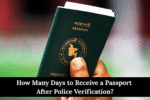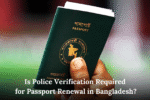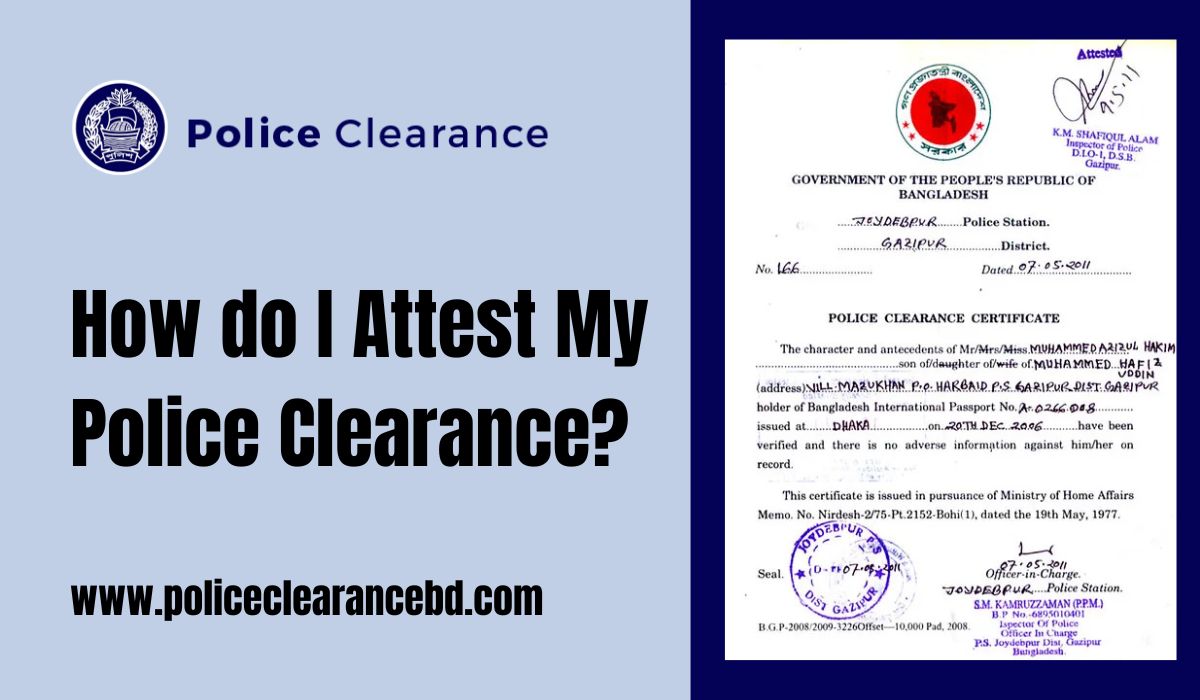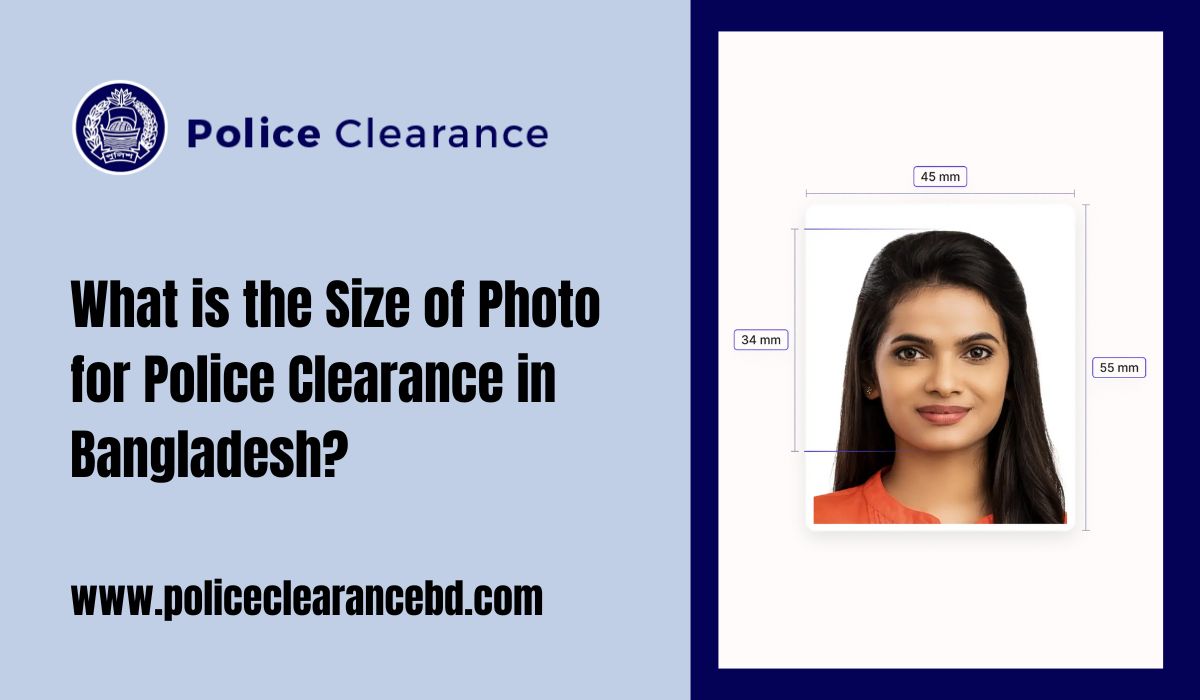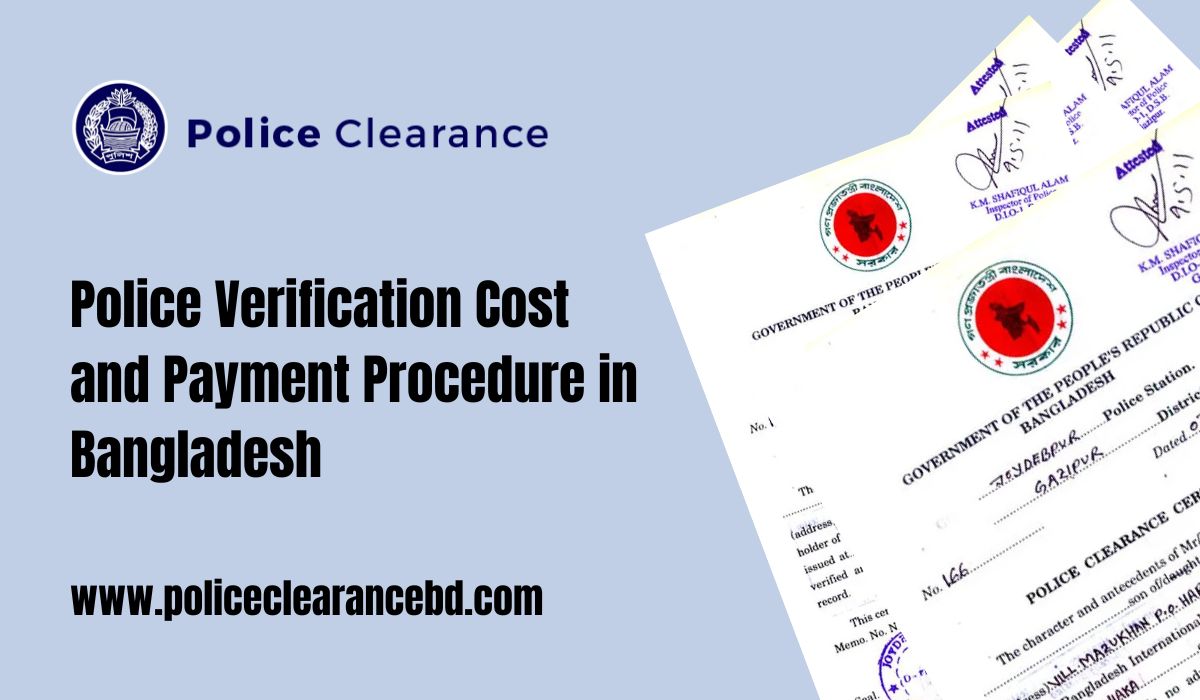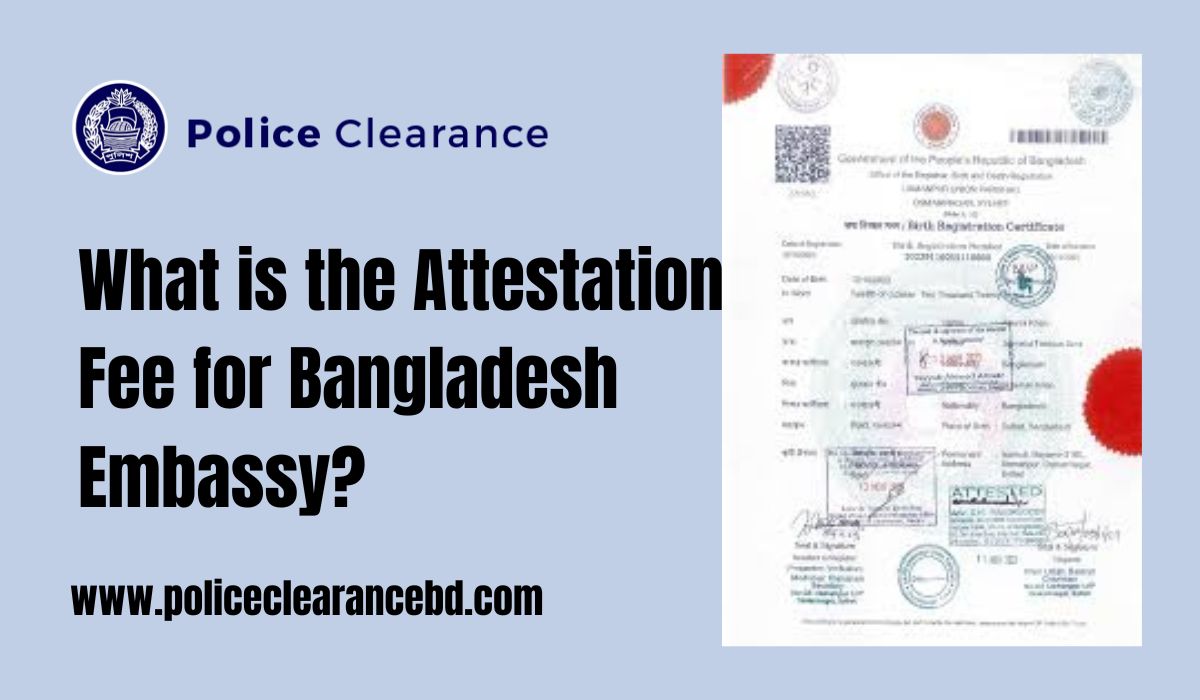Why is PCC Required For Visas
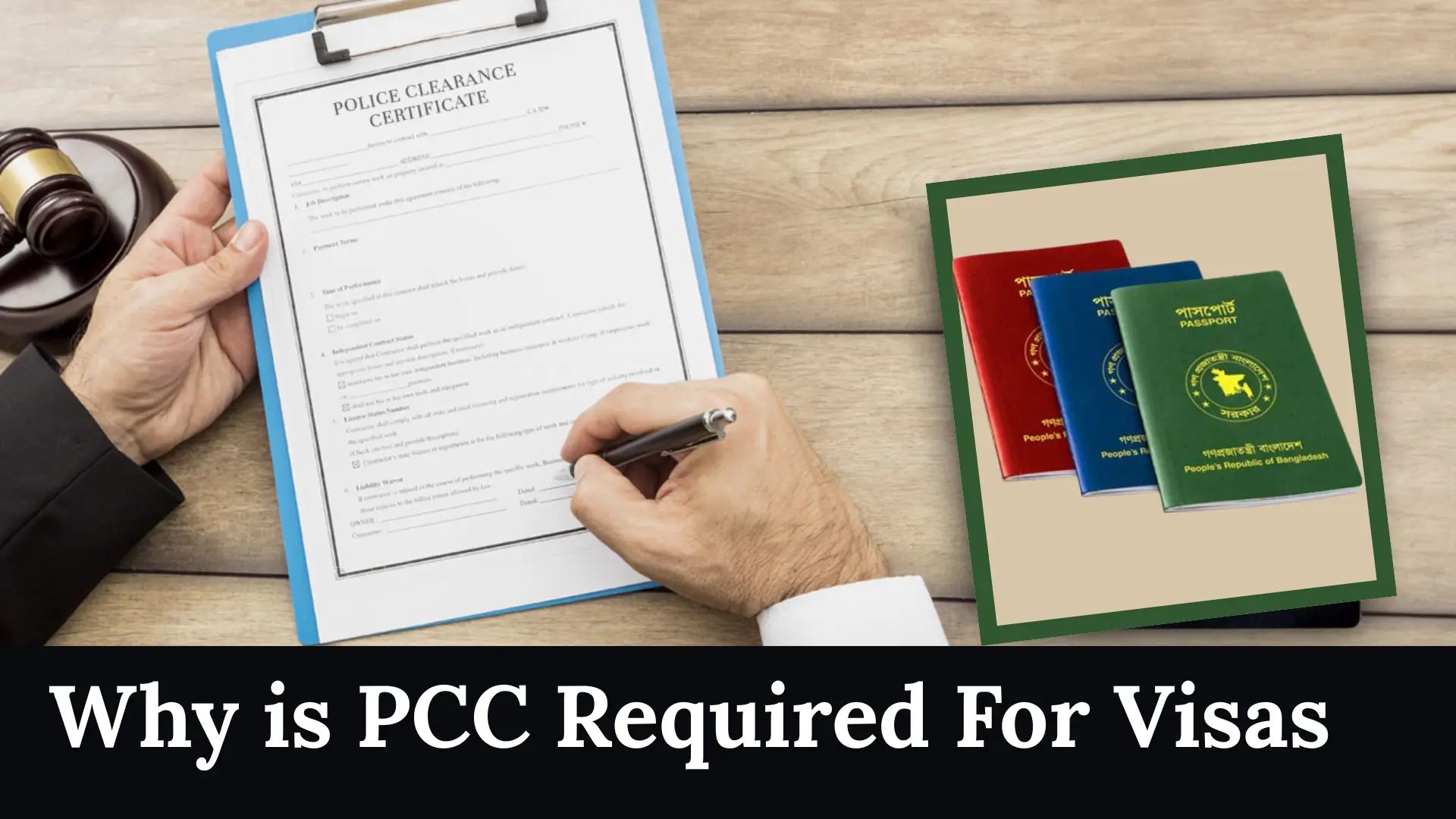
Why is PCC Required For Visas. When you plan to go abroad for work, study, or permanent settlement, one important document you’ll often need is a Police Clearance Certificate (PCC). Many people wonder, “Why is PCC required for visas?”
Simply put, a PCC proves that you have a clean criminal record. It shows that you are a law-abiding citizen and have never been involved in any illegal activity. This helps foreign governments ensure that their country remains safe and secure for residents and visitors.
What is a Police Clearance Certificate For Visa?
A Police Clearance Certificate (PCC) is one of the most important documents required when applying for a visa. It is an official record issued by the police or a government authority confirming that the applicant has no criminal background or pending legal cases. The purpose of a PCC is to prove that you are a law-abiding citizen and can be trusted to live, work, or study abroad. Whether you’re applying for a work visa, student visa, family visa, or immigration, having a valid PCC helps build trust with foreign authorities and increases your chances of visa approval.
Why is PCC Required For Visas?
Foreign governments want to ensure that every person entering their country is trustworthy and has no criminal background. That’s why a Police Clearance Certificate is a key part of most visa applications.
Here are the main reasons why PCC is required for visas:
1. For Long-Term Visas (Education, Employment, or Family Reunification)
If you are applying for a long-term visa—such as for studying abroad, joining a family member, or working in another country—you must submit a valid PCC.
- Student visas: To confirm that international students have a clean background before joining universities.
- Family reunification visas: To ensure no applicant poses a threat to the host country.
- Employment visas: To allow employers to hire candidates with verified, crime-free backgrounds.
In short, it builds trust between you, the embassy, and the host country.
2. For Working Abroad
When you apply for a work visa, the PCC acts as proof of your honesty and lawful conduct.
It assures foreign employers and immigration departments that you meet all legal and moral requirements to work in their country.
For example:
- In the UAE, a Good Conduct Certificate is mandatory for many professional jobs.
- In Canada and Australia, a PCC is needed for most work-permit and PR applications.
Without a PCC, your visa may be delayed or even rejected.
3. For Immigration or Citizenship Applications
When applying for permanent residency (PR) or citizenship, the importance of PCC becomes even greater.
It helps the immigration authority confirm that:
- You have no criminal history.
- You are a responsible and law-abiding individual.
- You can be safely integrated into their society.
A clean PCC makes your immigration process smoother and faster.
4. To Meet International Legal Requirements
In many countries, it is a legal requirement to submit a PCC before issuing certain visa types. This ensures transparency and safety at an international level.
By submitting your PCC, you comply with both local and foreign immigration laws, reducing the chances of rejection or investigation later.
5. To Build Credibility and Trust
Having a valid PCC shows that you are a genuine and trustworthy person. It strengthens your application and improves your chances of approval.
Embassies often prioritize applicants who provide complete and verified documents—including a PCC—because it shows seriousness and responsibility.
When and Where is PCC Needed?
| Purpose | When PCC is Required |
|---|---|
| Study Visa | During university or college admission abroad |
| Work Visa | Before joining an overseas employer |
| Family Visa | For spouse or dependent reunification |
| Immigration/PR | When applying for permanent residency or citizenship |
| Long Stay Visa | When staying abroad for more than 6 months |
How to Apply For a Police Clearance Certificate
The process is usually simple and can be done online or at your local police station.
- Visit the official Police or Passport Office website.
- Fill out the PCC application form with accurate details.
- Attach your passport copy, national ID, and photographs.
- Pay the required processing fee.
- Undergo police verification if needed.
- Receive your PCC certificate either physically or via email.
Note: Always check your destination country’s visa requirements before applying. Some countries accept PCCs only if they are issued within the last 3 or 6 months.
Validity of a Police Clearance Certificate
A PCC is usually valid for 6 months to 1 year, depending on the issuing country. However, embassies and consulates generally prefer a recently issued certificate to ensure up-to-date verification.
If you plan multiple visa applications, you may need to get new PCCs each time.
What Happens If You Don’t Submit a PCC?
Failure to submit a valid Police Clearance Certificate can cause:
- Visa delays or rejections
- Loss of job opportunities abroad
- Extended background checks
- Reputation risks during immigration verification
Therefore, always arrange your PCC early in your visa process to avoid last-minute issues.
Tips for Smooth PCC Approval
- Apply at least 1–2 months before your visa submission date.
- Keep your personal details consistent with your passport.
- Make sure there are no pending legal cases in your name.
- Use only official police or government portals.
- Keep extra copies for future visa renewals.
Countries That Commonly Require PCC For Visa
| Country | Visa Type |
|---|---|
| UAE / Qatar / Saudi Arabia | Employment, Residence |
| Canada | Immigration, PR |
| Australia | Work, Study, PR |
| United Kingdom | Work, Immigration |
| United States | Work, Green Card |
Conclusion
A Police Clearance Certificate (PCC) is more than just a formality—it’s your proof of integrity.
Whether you’re moving abroad for education, employment, family reunion, or immigration, a valid PCC shows that you respect the law and meet all international standards.
Always get your PCC early, check its validity, and keep it ready for submission. It can make the difference between visa approval and delay.


